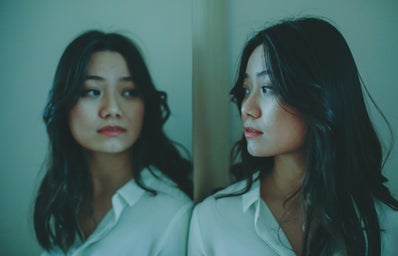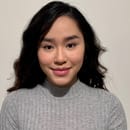‘Model Minority’ is the concept that Asians are achieving more, socioeconomically, compared to other minorities. This is a result of Asians generally doing better in school, stereotypically becoming doctors or pharmacists, and obtaining higher income. This ‘model minority’ concept is used to tell other minority groups that they can achieve the same success if they work hard enough, dismissing the systemic racism that exists in America.
As a teenage girl, the model minority confused me. It told me that I was the best out of all the minority groups out there, that I was the smartest, the wealthiest, and that I should be proud to be Asian; however, I didn’t feel this way, in fact, I was ashamed of my culture.
I grew up in Riverside County, California. All my friends were Hispanic and I didn’t know anyone who looked like me. When I watched movies or shows, the main characters were never Asian. Asian characters that were present in movies or shows were portrayed in undesirable ways (like London Tipton from The Suite Life of Zack and Cody). There were no Asian celebrities or role models to look up to in mainstream American media. Subconsciously, I was constantly told that Asians weren’t good enough to be the main character.
In school, I would always hear racist remarks from my classmates and even my so-called friends. I was constantly made fun of for having small eyes, making me feel like my Asian features weren’t beautiful or desirable. People made fun of my food and accused me of eating dog, which subconsciously told me that my culture’s food was disgusting. Compliments I received were backhanded. Instead of simply being told that I was pretty, I was told that I was pretty for an Asian girl. My experiences with Asian jokes and racist remarks made me want to run away from my culture instead of embracing it. I wasn’t proud to be Asian even though the ‘model minority’ told me I should be.

The ‘model minority’ is harmful because it downplays the racism Asians face on a daily basis. It doesn’t address the lack of representation of Asian role models in mainstream media for little Asian girls or boys to look up to. It doesn’t address the common racist remarks such as “ching chong” which attack our Asian language and imply that our dialect is ugly. It doesn’t address the rude comments toward our eyes and food that imply our features are ugly and that our food is disgusting. It doesn’t address the backhanded compliments that many Asian women receive that tell us “you’re pretty because you don’t look like the rest of them.” The ‘model minority’ is one of the reasons why racism against Asians is normalized and downplayed. The so-called “status” of the Asian minority group suggests that the jokes are no big deal, that we should just laugh it off, that it is okay for others to pick on us. The truth is that it’s not okay, all the racist remarks and jokes encourage Asian Americans to run away from their culture instead of embracing the true parts of themselves.




